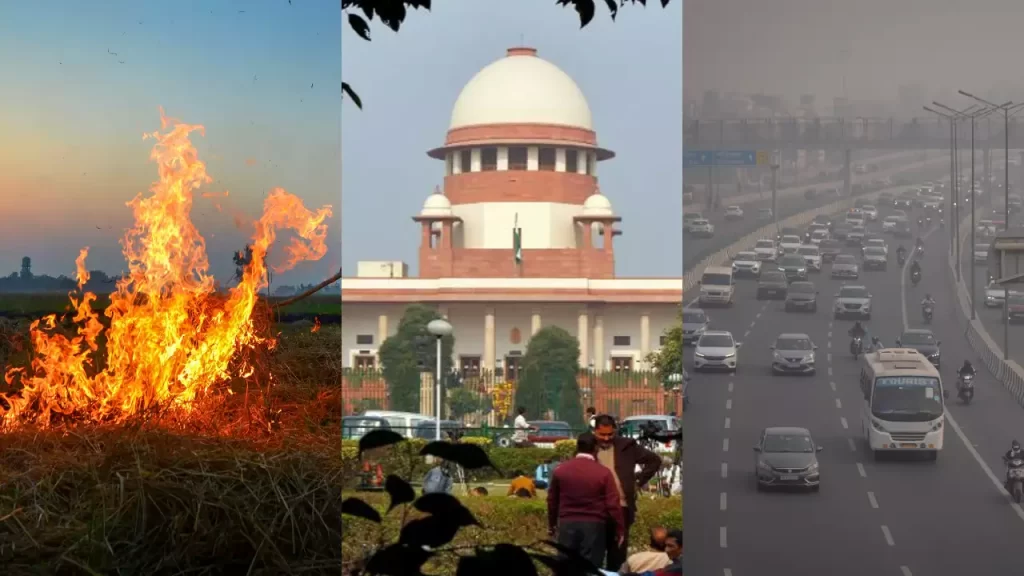Jahanvi Agarwal
On 24th September 2024, the Supreme Court sought clarification from the Commission for Air Quality Management (CAQM) regarding actions taken against those responsible for stubble burning, a major contributor to the region’s air quality degradation. The matter was raised by Senior Advocate and amicus curiae Anita Shenoy before a bench comprising Justices Abhay S Oka and Augustine George Masih.
Shenoy highlighted the urgency of the situation, stating, “Stubble burning has started. I am seeking directions to the CAQM to explain why this is happening… and what action they have taken against the guilty officials.” Responding to this, Justice Oka remarked, “Yes, we want a reply. We will get the reply on Friday.” Additional Solicitor General Aishwarya Bhati, representing the CAQM and the Central government, assured the court that the necessary information would be provided within the stipulated time.
Stubble burning, a practice where leftover crop residue from wheat and paddy harvests is set ablaze to clear fields for the next crop cycle, has been a significant contributor to air pollution in Delhi and its surrounding states. Despite being a cost-effective and convenient method for farmers, this practice has severe environmental repercussions, particularly during the winter months when air quality in the region declines sharply.
The Supreme Court has been closely monitoring the issue, especially the rise in stubble burning in neighboring states like Punjab, Haryana, and Uttar Pradesh. In its December 2023 order, the apex court had emphasized the need for collective cooperation to combat air pollution.
It also urged the Punjab government to expedite the collection of environmental compensation from farmers violating stubble burning restrictions. The court reiterated the necessity of stopping crop-burning incidents and maintaining continuous surveillance of both air quality indices and stubble burning violations.
The court has expressed concern in the past that measures like the odd-even vehicle rule, introduced by the Delhi government to curb pollution, were insufficient, labeling them as “mere eyewash.” It has also criticized the delay in the implementation of eco-friendly transport initiatives such as the Regional Rapid Transport System (RRTS), a project designed to promote sustainable urban transit.
Furthermore, the Supreme Court has previously stated that filing criminal cases against farmers for stubble burning might not be an effective solution. Instead, it suggested withholding the Minimum Support Price (MSP) for crops as a possible deterrent for those continuing the practice.

